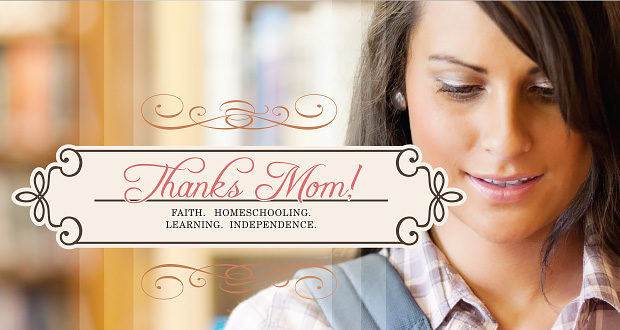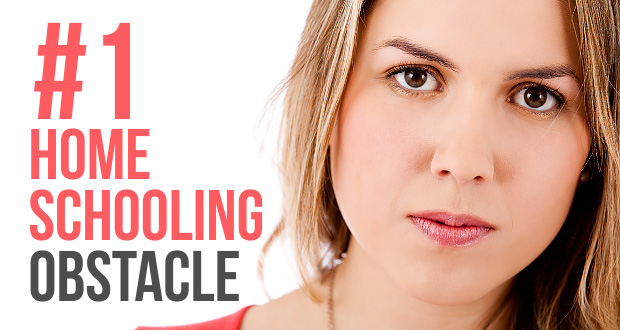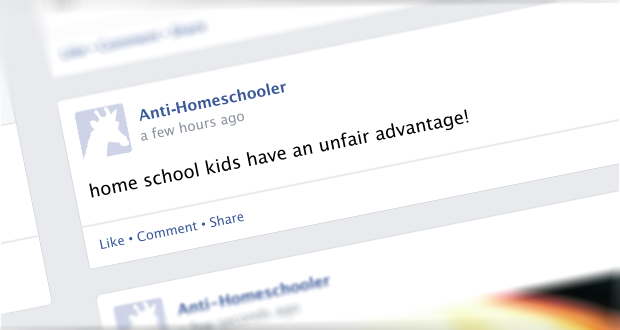Dave Armstrong
February 19, 2014
9,010 Views
by Dave Armstrong | Sometimes people say that the Bible and tradition are against each other (with tradition being the “bad” thing). But the Bible itself teaches that tradition was already around before the Bible was put together. In fact, the Bible itself is part of the Christian tradition, just as the Catholic Church also is.
Read More »
Dr. Mary Kay Clark
February 10, 2014
13,049 Views
by Mary Kay Clark | The most important subject is religion. We are homeschooling because we want to teach Catholic values and the Catholic Faith to our children. Most homeschooling families in this country are Christian families who see that the public schools have completely eliminated religion from their classrooms.
Read More »
Featured Families
February 4, 2014
17,264 Views
by Heather Kerbis | A large homeschooling family seems natural to us now, but in the beginning, homeschooling was not on our radar. We were married relatively young, in our very early 20s, and assumed our children would go to the classroom for education.
Read More »
Contributing Writers
February 2, 2014
11,225 Views
Jennifer Tutwiler tried every kind of schedule there is. Her family couldn't settle into a a successful schedule - until she broke free of 5 popular myths.
Read More »
Contributing Writers
February 1, 2014
7,814 Views
By Sarah Rose | There are some things we come to appreciate more as we get older. Oftentimes, cradle Catholics may not have a deep appreciation for their faith until they experience a type of conversion in their teen or young adult years.
Read More »
Contributing Writers
January 31, 2014
8,231 Views
Pope Francis: "There is another form of poverty! It is the spiritual poverty of our time, which afflicts the so-called richer countries particularly seriously. It is what my much-loved predecessor, Benedict XVI, called the ‘tyranny of relativism,’ which allows everyone to create his own criterion and endangers the coexistence of peoples. But there is no true peace without truth.”
Read More »
Seton Home Study School
January 29, 2014
9,770 Views
The results from a Seton survey prompt valuable insights into how much time to schedule for homeschooling and Seton staff offer guidance for flexibility.
Read More »
Seton Home Study School
January 28, 2014
11,857 Views
We are sometimes asked why Seton’s materials are so saturated with Catholic content. There are a myriad of reasons, but first and foremost, we fill our curriculum with Catholic content because we know that in God’s plan, the purpose of education is not simply to learn facts, but to prepare souls—curious combinations of intellect and will—for eternity. Education, from this perspective, is a hugely important, yet delicate, task.
Read More »
Contributing Writers
January 22, 2014
7,933 Views
Seton received a letter from a home schooling mother who reflected on her decision to home school. The following are highlights from her letter. The reason I began to home ...
Read More »
Seton Home Study School
January 21, 2014
23,025 Views
Several of our graders and counselors in the English Department came up with some ideas to help students to understand the different kinds of “conflict” which students are to write about in a book analysis for high school English. We think this might be useful for all our parents and students when analyzing books.
Read More »
Mary Lou Warren
January 18, 2014
10,820 Views
As homeschooling parents, we often look for the best way to motivate our children in their academics. Professor Brandon Irwin of Harvard Business School has conducted studies regarding motivational style. Although this was done with business organizations in mind, we parents can sometimes learn from such studies and apply the principles to our educational adventure.
Read More »
Seton Home Study School
January 14, 2014
11,154 Views
Academics and spiritual formation go together. Seton shares some of Pope St. John Paul's inspirational thoughts on homeschooling and the love of truth.
Read More »
Ginny Seuffert
January 13, 2014
15,210 Views
Families grapple with discipline in the home. Ginny Seuffert tackles an aspect of it by making etiquette part of and not an obstacle to homeschooling.
Read More »
John Clark
January 11, 2014
13,459 Views
We can’t socialize well (because we never go out of the house); we’re not good at sports; it’s not healthy to spend so much time around your Mom; we’re not qualified to teach geography (because we never go out of the house); we’re not qualified to teach anything; snow days are healthy for kids and homeschoolers don’t get snow days, and so forth.
Read More »
Mary Lou Warren
January 7, 2014
9,420 Views
Catholic homeschooling is like running a circus! Mary Lou Warren explores 7 things the circus experience shares in common with running a homeschool.
Read More »
Contributing Writers
January 6, 2014
5,638 Views
Have my second grader reading. - My resolution is to have more fun with teaching. - More reading aloud, more hands on learning fun. - Keep up with grading and hours. - Grade every week and to be more hands on. - Be more consistent.
Read More »
Seton Home Study School
January 5, 2014
11,046 Views
Shakespeare in one scene has Hamlet walking up and down in the castle with a book open in his hand. When Polonius comes up and politely asks, “What is it ...
Read More »
Featured Families
December 31, 2013
11,564 Views
Pregnant and nauseous, I traveled with my husband, kids, and parents to Emmitsburg, Maryland, to sit on a rock. Yes, a rock. It’s a long story that begins and ends with Saint Elizabeth Ann Seton. As I sat on the rock from which Saint Elizabeth Ann Seton taught her first three students, with my first three “students” Gianna...
Read More »
Ginny Seuffert
December 28, 2013
9,881 Views
Every Catholic homeschooler knows the marks of the church – One, holy, catholic and apostolic. We recite them in the Creed at Mass, and they remind us of the nature of our Church. In much the same way, Catholic homeschooling has marks and characteristics too.
Read More »
John Clark
December 20, 2013
7,386 Views
In my experience, no one makes comparisons more than homeschoolers. We say things like: “Mrs. Jones is better than I am at teaching math,” or “Why can’t we get our kids to do their violin practice as well as Mrs. Smith’s children?” or “That family doesn’t let their kids watch television—they’re better than we are.”
Read More »


 Seton Magazine Catholic Homeschool Articles, Advice & Resources
Seton Magazine Catholic Homeschool Articles, Advice & Resources

















